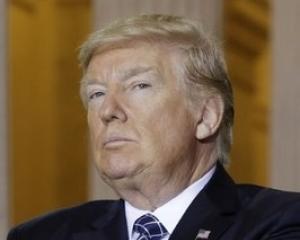Speaking at the opening of the University of Otago's 47th Foreign Policy School in Dunedin last night, Mr McCully said he was "intent" on promoting legislation giving New Zealand the power to impose autonomous sanctions. At present, New Zealand can only apply UN sanctions.
"In an environment in which the UN Security Council appears to have difficulty agreeing ... it is my view that New Zealand needs to have the capacity to impose sanctions outside the UN framework."
In an interview, Mr McCully said it would be up to 18 months before any legislation was passed.
The length of time it took to go through Parliament would largely depend on whether other political parties supported it.
Mr McCully had previously said he was considering such a law, but had not been as forthright in his support as he was last night. The legislation would be similar to a law passed by Australian Parliament last year.
Mr McCully's speech centred on the theme of this year's school: "The Middle East Unfolding: Dreams and Drama in the early 21st century".
He described the ongoing conflict in Syria as "in effect, a civil war" and was critical of the UN for being "impotent in the face of mounting brutality" from Bashar al-Assad's regime.
"Our message to the five permanent members of the [UN] Security Council is that if they cannot find a way to work with each other in situations of this sort then the credibility of that organisation will continue to suffer."
Conflict in the Middle East was important to New Zealand because it could cause global instability and because we were able to "make a difference" in the region, he said.
This was shown in the work New Zealand de-mining experts were doing removing mines from nearly 400sq km of unusable land on the West Bank.
The project required "respect" from both the Israeli and Palestinian sides, which was why many other countries had put it in the "too hard basket".
This "respect" was shown in a visit he made to the region a few weeks ago where he was given a good hearing by senior players from both sides, including Israeli Prime Minister Netanyahu and Palestinian President Mahmoud Abbas.
He also spoke about the importance of trade with the Middle East and, in particular, the oil rich Gulf States.
New Zealand exported about $1.6 billion of goods to Gulf Co-operation Council countries and there was "huge" potential for growth, he said.
Some of the potential growth areas included taking advantage of our agricultural intellectual property and selling our public service expertise to help Gulf States keen on public sector reforms.











